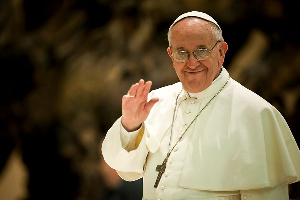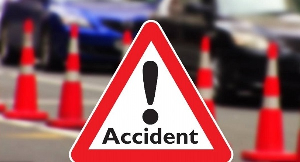Many Ghanaians do not want to discuss the moral aspects of Aremeyaw’s methods. In our justified anger at the misdeeds of the justices and our relief and happiness that they have, at last, been exposed, we tend to see those who dare criticise Anas’ methods not only as disappointing killjoys but unpatriotic fools! How can you criticise the man’s methods when he is doing such tremendous services to society, risking his very life in the process? On ghanaweb, people will even insult you basabasabasa for daring to question Anas’ investigative methods.
But there are clearly moral and legal dimensions to Anas’ methods that need to be discussed! The very call for discussion should not be seen as support of the judges or an attempt to condone bribery or to undermine Anas’ work. Such a discussion should be seen as a normal part of our democratic process – the free exchange of ideas without fear or favour. There is no need to insult anybody who brings the matter up when you can so easily show how wrong the person is.
The issues are simple. How far can an investigative journalist, a private eye, the police, the secret services and other such agencies go in their efforts to apprehend wrongdoers? Can any method be justified as long as it succeeds in preventing crime and bringing criminals to justice?
These questions are not new. They have to do with the balancing requirements of needing to prevent crime at the same time as we are trying to preserve civil liberties. In the USA, the events of 9/11 have brought this issue more in focus. The discussion is still going on.
In most countries, the police need a court’s permission to listen in on the conversations of suspected criminals. A warrant is required to make a search. If you read about the methods of the FBI, you will see that many of them may not stand the scrutiny of the courts. Even as they are installing their bugs and other devices, they know which laws they are infringing and which of their findings cannot be accepted in court. As for the CIA and other spy organisations, they have the leeway to operate far beyond the confines of the law, not because there are any legal justifications for that but because those methods are needed to achieve the ends they want. When they are caught, they do not use the law to justify their actions. They simply deny that they did those things. And they can get protection from the highest governmental agencies. The public is not even supposed to know that these people exist, let alone what they are doing.
But these are state agencies acting on behalf of the government that is supposed to act in the public interest. Should private investigators also be given such tacit approval when they are investigating crimes, the solutions of which are beneficial to society? Should the public look the other way if a private individual indulges in some excesses in an effort to solve a crime that is beneficial to society? Should every investigative method be justified as long as the greater end of a societal benefit is reached by that method?
It is said that Aremeyaw has been given immunity based on the whistle-blower act. At least one lawyer has declared his intention to challenge this in court. The outcome of this challenge will clarify the whistle-blower act. As a layman, I understand a whistle-blower as a person who sees a crime in the institution to which he belongs and, under protected anonymity, reports the existence of the crime. A whistle-blower cannot be an outside individual who incites to a crime in order to give the criminals away. If this were so, some people would make it their duty to incite to crime, and get rewarded for reporting the crime.
It is an offence to bribe a public official. When a bribe is offered to a public official who accepts it, both the giver and the taker are supposed to be guilty of an offence. If the official accepts the bribe with the intention of using it as evidence of the commission of a crime, can the bribe giver turn around to report the official for getting a bribe? All these are questions worthy of discussion. I do not presume to know the answers.
Aremeyaw has qualified as a lawyer and this will put him in good stead to determine the legality of his methods. I have not watched Aremeyaw’s film and cannot pronounce on the legality (or morality) of his methods. I don’t think there is anything wrong in freely discussing these methods.
Nobody is crying for the fallen justices except, perhaps, their immediate family members. Many of them are fighting the actions being taken against them. In their desperate efforts to get off the hook they are turning to the very judicial system that they subverted. We live in a democracy and they have the right to defend themselves and ask lawyers to represent them. The principle of having lawyers defend people whose crimes are palpable is to give them a fair chance at redeeming themselves. When people say the law is an ass, they mean that the law is not an upholder of morality or even of justice. The party that wins a case in court is the party that has made the better legal argument. That is why known criminals can walk free if they are able to pay the best legal minds to defend them. It is this very principle that has enabled the justices to find legal loopholes to set criminals free when a bribe is paid.
Those of us who have not had an opportunity to get a bribe (but have had several to give one) have now mounted the moral high ground and are crying the loudest for blood. Of all Anas’ exposures this is the one that has angered the public most. The reason is simple. It involves judges – the very group of citizens who have vowed to be above blemish in the discharge of their duties and who can play an important role in fighting corruption. The let-down is too much for us to swallow but there has been a certain Schadenfreude creeping into some of us.
In the end the issue is about the methods that are justified in our efforts to fight corruption in our society. Many of us know of the book THE PRINCE by the Renaissance Italian philosopher, Niccolò di Bernardo dei Machiavelli. The saying “the end justifies the means” has been attributed to Machiavelli even though there is no known record of his ever having said those words. But Machiavelli, a brilliant philosopher who has become known as the father of political philosophy, may not agree that every method can be justified as long as the sought for goals are met. The man was a humanist who taught that we should examine all aspects of a problem. In his day, Machiavelli wrote official accounts of corruption in Florence, the decadence of the late Roman Empire and the deception of Italian popes. From Machiavelli, we know that it is often the sinners, rather than the saints, who rise to power and cling to it – a situation that is all too familiar to us today.
Anas is fighting the same social evils that Machiavelli wrote against in his time. Machiavelli himself was arrested and tortured by the very authorities he sought to advice. When he was released, he left politics to concentrate on his writing. Nobody is going to arrest Anas and nobody is going to torture him for anything. Nobody wants him to stop doing what he has become so good at. His work may not uproot all corruption from our society but he has put fear into many people and he is certainly contributing far more than his widow’s mite to the fight.
But, for goodness’ sake, let us freely discuss his methods too, even if only to make sure that ANAS IS WATCHING YOU! does not become BIG BROTHER IS WATCHING YOU!!!
Kofi Amenyo (kofi.amenyo@yahoo.com)
Opinions of Sunday, 27 September 2015
Columnist: Amenyo, Kofi














